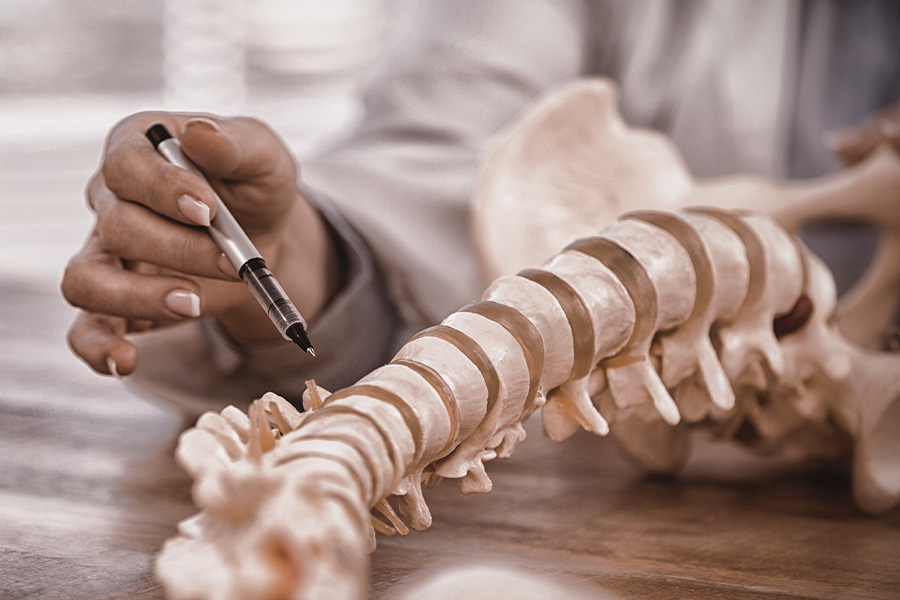
Bone health is a critical aspect of overall well-being that often goes overlooked until issues arise.
Our bones provide structure, protect our organs, and support our muscles.
However, as we age, our bone health can deteriorate, leading to conditions such as osteoporosis and an increased risk of fractures.
Understanding the factors that contribute to bone loss is essential for maintaining strong and healthy bones.
Factors Contributing to Bone Loss: The Root Causes
Maintaining strong and healthy bones is essential for overall well-being and quality of life.

But, various factors can contribute to bone loss, leading to conditions such as osteoporosis and an increased risk of fractures.
Understanding the root causes of bone loss is crucial for prevention and effective management.
Let’s check into the factors that can impact bone health:
1. Aging: As we age, our bones naturally become more fragile and lose density. This age-related bone loss, known as osteopenia or osteoporosis, can increase the risk of fractures and other bone-related issues.
2. Hormonal Imbalances: Hormones play a significant role in regulating bone metabolism. Imbalances in hormones such as estrogen, testosterone, and thyroid hormones can impact bone health and contribute to bone loss.
3. Lack of Physical Activity: Physical activity is essential for maintaining bone strength and density. A sedentary lifestyle can lead to decreased bone mass and increased bone loss over time.
4. Poor Nutrition: A diet lacking in essential nutrients, particularly calcium and vitamin D, can weaken bones and increase the risk of fractures. Adequate intake of these nutrients is crucial for maintaining optimal bone health.
5. Medications: Certain medications, including corticosteroids, anticonvulsants, and proton pump inhibitors, can contribute to bone loss. These medications may interfere with calcium absorption or bone metabolism, leading to decreased bone density.
6. Chronic Conditions: Chronic conditions such as thyroid disorders, kidney disease, and autoimmune disorders can impact bone health and contribute to bone loss. Managing these underlying health issues is essential for preserving bone strength.
7. Lifestyle Factors: Smoking, excessive alcohol consumption, and insufficient sleep can also negatively impact bone health and contribute to bone loss. Adopting healthy lifestyle habits can help maintain strong and healthy bones.
Recent Study on Thyroid Medicine and Bone Loss
A recent study conducted by researchers at Johns Hopkins University has brought to light a potential link between a commonly prescribed thyroid medication, levothyroxine, and bone loss in older adults.
Levothyroxine, marketed under various brand names such as Synthroid, is a synthetic form of the hormone thyroxine and is frequently prescribed to treat hypothyroidism, a condition characterized by an underactive thyroid gland.

The study, presented at the annual meeting of the Radiological Society of North America (RSNA), focused on the impact of levothyroxine use on bone health in older adults.
The findings revealed that older individuals taking levothyroxine experienced greater bone loss, even when their thyroid function tests showed normal levels of thyroid-stimulating hormone (TSH).
This association between levothyroxine use and increased bone loss raises concerns about the potential effects of this medication on bone density and fracture risk in older adults.
The implications of this study extend beyond the immediate findings, shedding light on the complexities of managing thyroid disorders and their impact on bone health.
The research underscores the importance of considering the potential side effects of commonly prescribed medications, such as levothyroxine, on bone health in older adults.

By identifying this association between levothyroxine use and bone loss, healthcare providers can tailor treatment plans to minimize the risk of adverse effects on bone density.
This study paves the way for further research into the mechanisms underlying the relationship between thyroid medications and bone health, offering insights that can inform future treatment approaches and guidelines for managing thyroid disorders in older adults.
Ultimately, this study serves as a call to action for healthcare providers to carefully evaluate the risks and benefits of thyroid medications in relation to bone health, highlighting the importance of personalized and holistic approaches to managing complex health conditions.
Implications for Future Findings and Treatment
This groundbreaking study highlights the importance of considering the impact of medications on bone health, particularly in older adults.

By identifying the potential association between levothyroxine use and bone loss, healthcare providers can better assess the risks and benefits of treatment in this population.
Future research in this area can help improve our understanding of how thyroid medications affect bone health and lead to the development of more targeted and personalized treatment approaches.
Seeking Help for Your Bone Health at Dr. James Webb
If you are concerned about your bone health or are taking levothyroxine for thyroid-related issues, it is essential to consult with a healthcare provider who specializes in bone health.
At Dr. James Webb’s clinic, we offer comprehensive evaluations, personalized treatment plans, and ongoing monitoring to help you maintain optimal bone health.

Our team of experts is dedicated to supporting you in your journey towards strong and healthy bones.
Take the Next Step
Bone loss should not be taken for granted, it can happen to anyone.
Understanding the impact of thyroid medications on bone health is crucial for mitigating the risk of bone loss and fractures in older adults.
By staying informed, seeking specialized care, and prioritizing bone health, you can take proactive steps to protect and strengthen your bones for years to come.
Call us today at 918-260-9322 or contact us to schedule your Trabecular Bone Score test.

